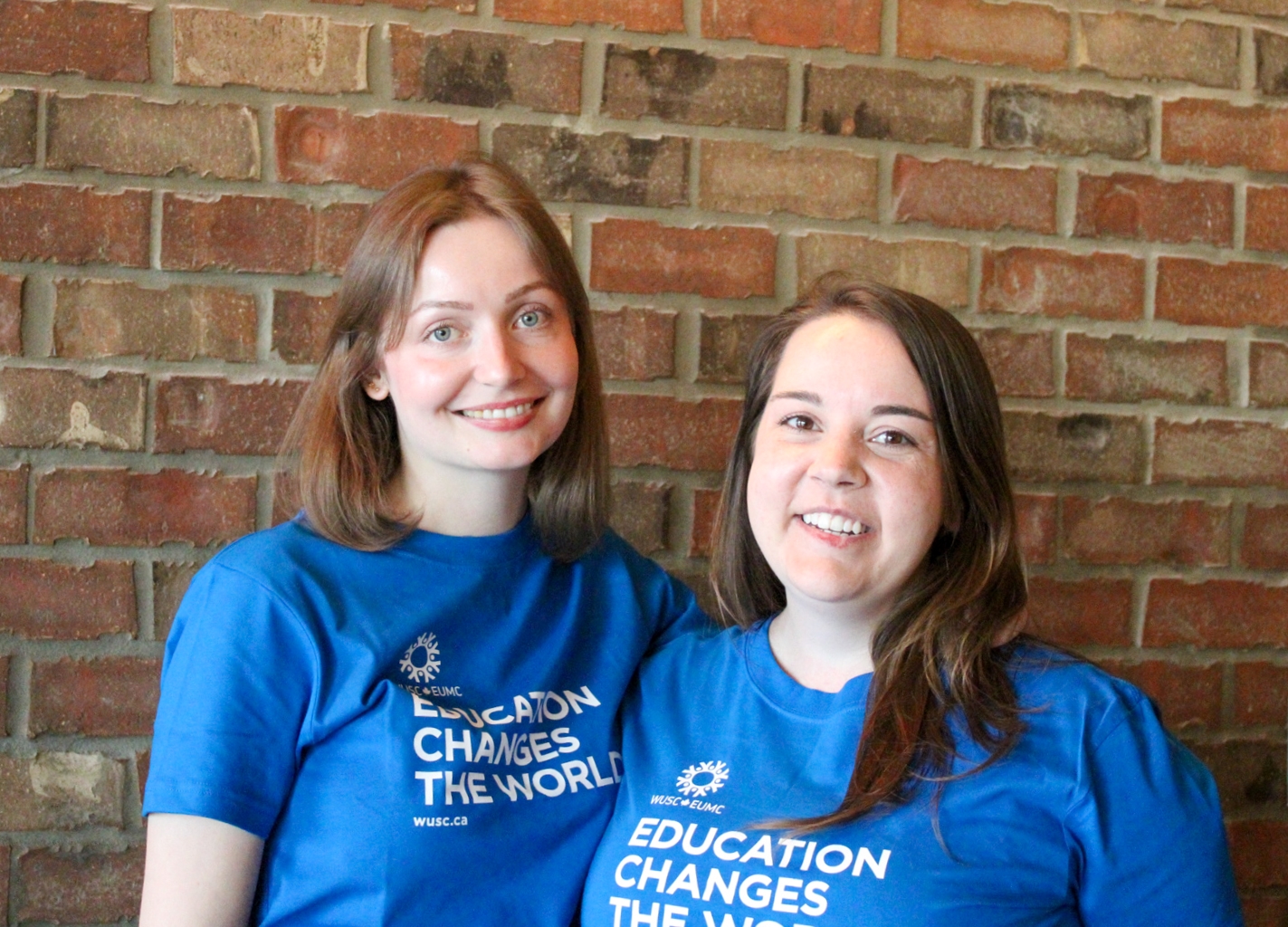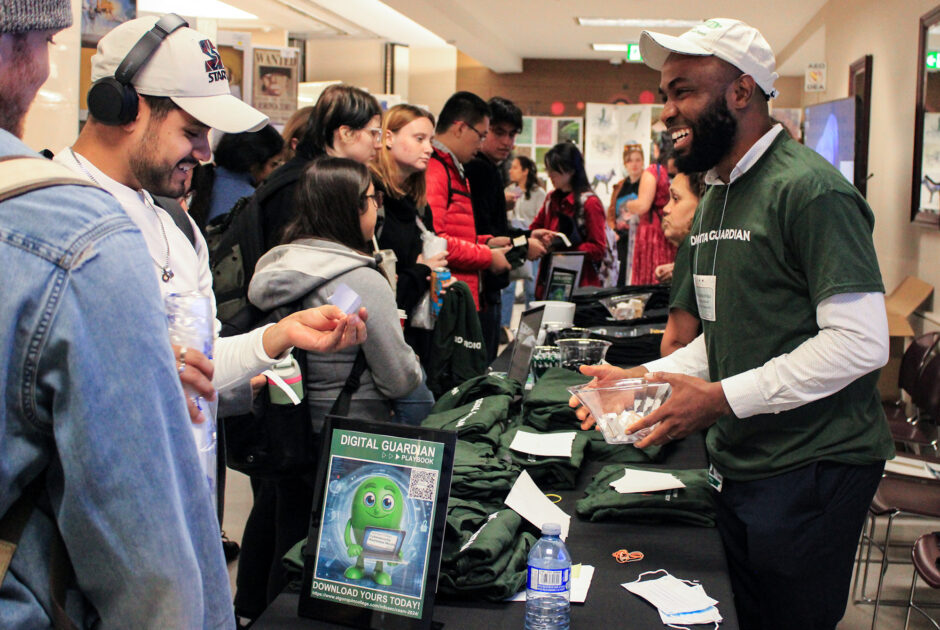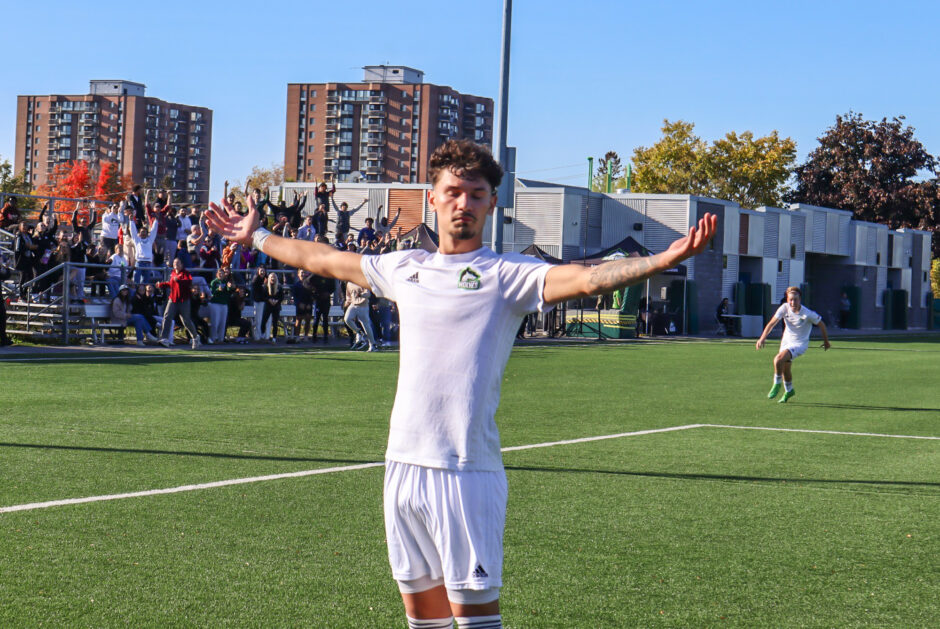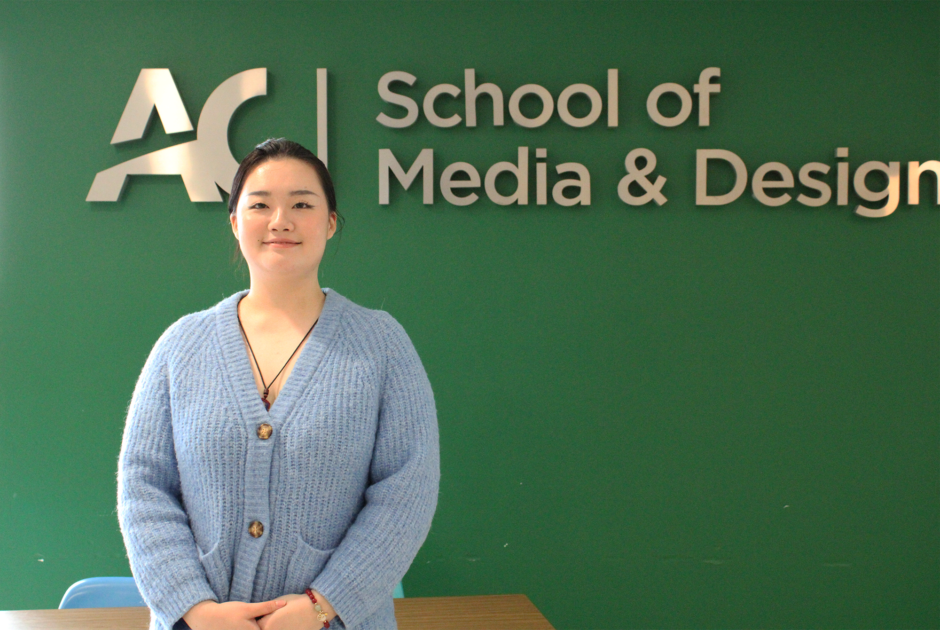Student and faculty group is sponsoring a refugee student

A group of students and faculty at Algonquin College are helping to bring a student refugee here to the college, beginning in the fall term.
Victoria Zaremba, 27, and Amy Winterburn, 30, are students in the social service worker program. They also sit on the local committee of the World University Service of Canada, a Canada-wide organization that sponsors refugees to come and study at Canadian institutions.
“WUSC has been around since 1978, and there are over a hundred universities and colleges that work with WUSC to sponsor refugees,” said Zaremba. This year marks the first time Algonquin College has been part of the program, and the local committee is excited.
“Carleton started this in Ottawa in 1978, and then uOttawa really got a hold of it,” Winterburn said. “Now Algonquin would like to put our hand in the basket. It’s our first time, from the ground up, doing this.”
The local committee is composed of students and faculty, although right now there are more faculty than students. “The committee formed in 2019, right before COVID hit,” Winterburn explained. “The faculty stepped up and did a good job keeping it alive for two years, and now we’d like to see more students get involved.”
Winterburn explained how a dozen faculty and staff from all around the college managed the committee for the past two years. Now they’re hoping students can take over.
It’s not easy to sponsor a refugee to Canada. When a private organization like WUSC undertakes sponsorship, they become legally responsible for the person’s health, well-being, housing, and financial stability. The federal government plays a minor role in the life of a sponsored refugee.
Julie Lafortune, a spokesperson for Sean Fraser, minister of immigration, refugees, and citizenship Canada, said the sponsoring agencies have an agreement with the government to support refugees from the moment they arrive in Canada.
“We recognize that governments have a core responsibility to refugees and that the right balance needs to be found between the use of Government resources and private sector resources,” Lafortune said. “Through the PSR [Private Sponsorship of Refugees] program, we are able to engage with citizens, civil society and service providers to ensure resettled refugees have social supports in place once they arrive in Canada.”
The person who will attend Algonquin College in the fall hasn’t been selected yet, although the list of candidates is down to four people. WUSC works with the United Nations Human Rights Commission to access refugee camps and other settlements where refugees are found around the world. Each candidate has to apply and include their personal story. WUSC sends those applications to the local committees, who then narrow down their selections to a few candidates.
Myriam Thanasse, a physics professor with the pre-health sciences program at Algonquin College, is the chair of the WUSC local committee. She said the local committee doesn’t have final say in who will attend. Instead, college admissions and WUSC will choose the final candidate, and then the local committee will take over when they arrive in Canada.
“This year, across the country, at about 110 institutions, they’re looking at welcoming about 130 students,” Thanasse said. “Then each local committee kind of picks up one or two of them.”
Sponsoring a refugee student isn’t cheap. The cost for one year can reach as high as $40,000. The local committee is responsible for this, and is looking at various fundraising options, including a $2 a year fee per student.
“To get the fee approved, we need to show the Students’ Association that students support the fee,” Zaremba, one of the students on the local committee, said in an email. “So we are collecting student emails, signatures and numbers.”
Ultimately, any request for a $2-a-year levy will need to be voted on in a college-wide referendum. Thanasse explained the committee is responsible for everything the sponsored refugee will need.
“We need to make sure everything is covered, be it health care, and glasses, or dental treatments, or any kind of other medical treatment that might come up in addition to the other costs,” she said. “There’s all sorts of things you have to prepare for.”
A referendum for the $2 levy has yet to be announced by the Students’ Association. Students interested in joining the WUSC local committee can contact Prof. Thanasse at thanasm@algonquincollege.com








